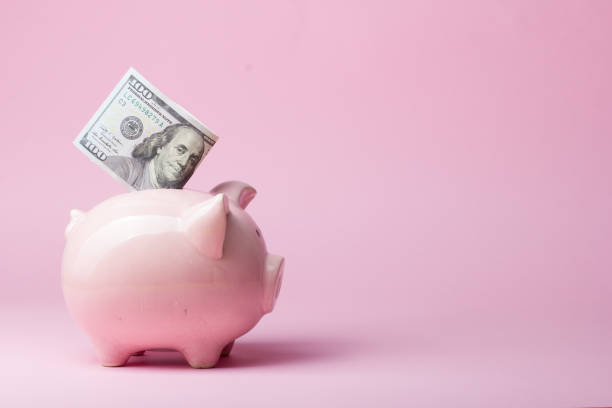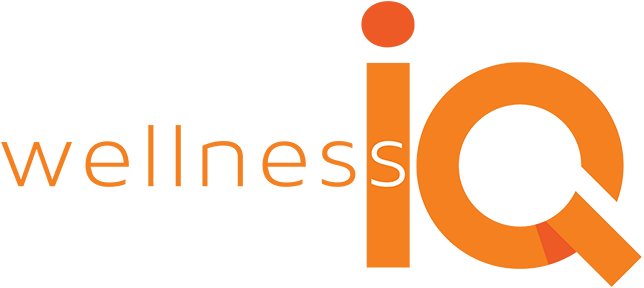Do These Things to Tackle Debt Quickly
Summary
Emily Billak, Wellness Strategy Manager at WellnessIQ shares that while she is not a financial advisor, she is a self-proclaimed money guru and student of financial education. By following the steps she has taken herself, you can quickly pay off debt and even save.

First, I want to start by saying what all self-proclaimed money gurus say, “I am not a financial advisor, nor am I a financial expert,” but a great student who loves to learn and challenge myself daily. And by following the steps that I have learned from some of these gurus, I have been able to save money and pay over $30,000 in debt in 18 months… all while we were in a global pandemic.
Great, I am glad we got that out of the way! It’s the beginning of a new year and I wanted to share all the helpful tips I have learned to help get out of debt, create a practical budget, and begin building my wealth.
Talking about finances usually is a taboo topic to talk about with coworkers, friends, and even family. I plan to break that barrier since many of us are struggling with how to pay off debt. I plan to create a realistic budget and try my best to get ahead in this world.
The first thing I learned about money was to start with a little safety net – I have this as my savings account. This can be a small amount you keep off to the side as an “emergency fund”. The goal is to live in the essentials and be uncomfortable for a short time to enjoy life and be ahead of the game later.
To get you there, you should focus on prioritizing three things:
- Building your emergency fund: this is important to have if something comes up so that you’re not digging yourself deeper into a hole
- Paying for daily essentials: shelter (where you live), your car/transportation, food, etc.
- Paying your regular monthly bills: utilities, rent/mortgage, insurance, etc.
Let’s move on to our budget. This will be one of the most helpful parts of your financial planning toolkit. Planning out how you will spend each cent you earn/have will help you recognize where your money goes, and you can plan for it instead of your money disappearing immediately! What I like to do each month is create a spreadsheet. Here, I list out my income or what is coming into my bank account, all the expenses I must pay, all of the items on my credit card, and any automatic payments I have that are upcoming for that month. On the side of that spreadsheet, I create a list of topics I spend money on. Each time I have cash move into my account, out of my account, or every time I swipe my credit card, I log this in my spreadsheet and link it to what topic that money is associated with. After a few months of writing out my daily spending, I can determine how much money I need to budget. The critical part of that planning is ensuring what I plan equals what I have earned for that month! The main topics I have in my spreadsheet are as follows:
- Housing- includes my rent, utilities, streaming subscriptions, automatic house-related payments, etc.
- Transportation- gas, insurance, car payments
- Food- this will be groceries and any meals bought outside of the house
- Health- this includes my gym membership, and anything related to my health
- Dog- all expenses for my little pup- food, doctors, toys, etc.
- Personal/Fun- yes, we still need to enjoy ourselves!
- Savings- I try adding a small amount to my monthly savings account! Especially after we pay off our debt!
Again, having this budget plan and living in the uncomfortable for a short time will help in the long run!! Once you feel comfortable with the budget you have set, you are ready to move on to the next step.
Next, let’s talk about tackling the debt you have consumed. This is the scary part! But I promise you will feel that weight lifted off your shoulders once it is out of the way! I have provided the steps that I used that helped the most when completing this part.
- Write down all your debt; Yes, it is scary to see the amount. Be honest and write it all out. No one else has to see this!
- Organize your debt by least to most- don’t worry about the interest!
- Create your Plan- pay the minimum payment on all your bills.
- Once you have paid the minimum payments, you will start using all your extra money to pay off the smallest debt. Yes, the smallest dollar amount, not the smallest amount of interest.
- Use all your “leftover” money towards the smallest debt. If I have $100 after I pay all my minimums and daily living, I will add that amount to the smallest bill I owe. The fun part is seeing that amount decrease until you hit that last payment!
- Once you finish that, move on to the next debt.
- In theory, what you normally pay towards that first debt will roll into the second debt. So, this will be bigger and bigger amounts you can use towards that payment.
- Continue this through all your debt and watch those numbers dwindle!
- Don’t forget to celebrate each debt payoff!
- Be creative and find ways to celebrate that do not put you back into that debt! For me, I got together with my closest friends to have a celebratory dinner with my favorite homemade meal and some (cheap) champagne for a toast!
Are you a visual person like me? Keep all the debt on your wall either with post-its or however you like to see, and slowly remove or cross off the debt with each final payment!
Finally, we will move on to the last parts of our financial planning! After we have a small savings to help in an emergency, we have created our budget and plan for how we use our money and finally pay off that last debt payment, and we are ready to increase our savings and enjoy life without debt! But don’t forget, with all the following steps, make sure you pay all your monthly payments!
Increasing our savings/emergency fund to something comfortable in case we see some significant expenses happen to us- lose a job, need a new car, unexpected move or surgery, etc. We want to plan for the future, so we do not get back into debt if something happens. This is a great safety blanket! Again, referring to the financial gurus, the best amount is what you choose to have, but looking at 3-6 months’ worth of expenses is a great option. Let’s say you look over your budget, and the essentials- house, transportation, and food are $2,000 per month. We would look at having our savings/emergency fund between $6,000 and $12,000. This is great again if you unexpectedly lose your income and need three months to find the next job. This will help you not rush to “whatever you can get” and “settle” for what is next.
Did you receive an end of the year work bonus? Or did you receive your tax returns? When you receive additional money, you were not expecting or budgeting for, this is another great way to help move you along wherever you are in the process. If you are still working on your debt, this is a way to speed up the process. If you receive an additional $1,000 work bonus (great job!), adding this to the debt you are currently working on will give you a good chunk to get rid of! If you have already paid off your debt, this is a great amount to add to your savings/emergency funds. But also, don’t forget to enjoy this bonus that you worked hard for and treat yourself just enough to not go back into the debt process.
When you have hit this goal, now it is just about enjoying life, not getting into debt, saving money for the things you want to do- aka travel to a clear blue ocean and enjoy a tiki hut room with your loved ones – or maybe that is just me!
A friendly reminder: tackle one thing at a time and stay focused on the process! It might be uncomfortable saving, budgeting, and using all your money to pay off debt, but just imagine what you will do with that extra money once you are living the life you created! Enjoy the life you want to live and spread the love!
“Wealth is not about having a lot of money; it’s about having a lot of options.” – Chris Rock
